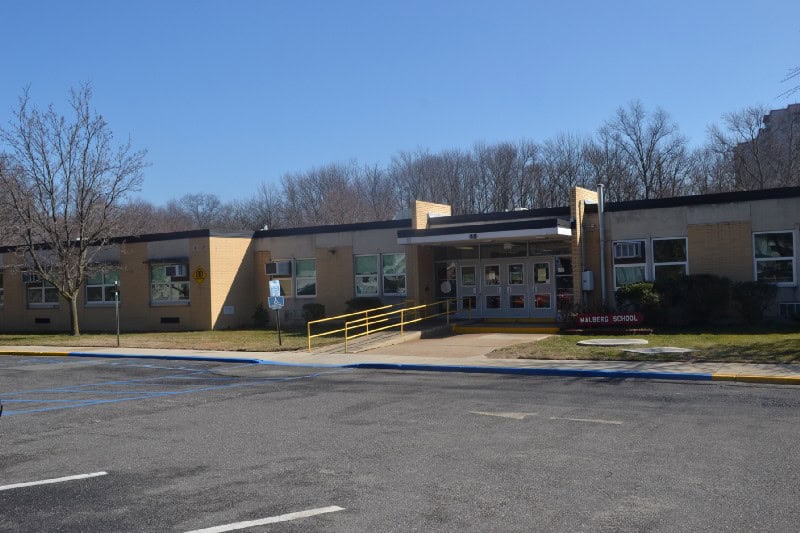
In response to the increasing tensions across the country between persons of color and authority figures in light of alleged police brutality, the greater Cherry Hill community gathered for an open forum on the state of its educational system and the future of its cultural proficiency curriculum.
The virtual meeting, which lasted for nearly 90 minutes on June 14, was hosted by Cherry Hill African American Civic Association (CHAACA) President Tina Truit and moderated by Cathy Jenkins, the organization’s financial secretary and program chair.
Joining the discussion were administrative personnel from Cherry Hill Public Schools, including Superintendent Joseph Meloche; board of education President Lisa Saidel; Cherry Hill Public Schools Director of Curriculum Dr. Farrah Mahan; District Cultural Proficiency Consultant Barbara Moore Williams; and George Guy, principal of Rosa International Middle School.
“CHAACA has provided $300,000 in scholarships for African American students to date. We have concerns about black history curriculum throughout the whole district, K-12,” Truitt began.
She called for revamping the curriculum to reflect the fact that “black history is American history,” and for more courses focusing on well-known African Americans in subjects such as English, science and math. Truitt also suggested the district dig deeper than icons such as Harriet Tubman, Frederick Douglass and Martin Luther King, Jr.
“The world today is different than it was five years ago, 10 years ago and 20 years ago,” Meloche stated in response. “The only way we can (make the right kind of change) as a society, is by changing the educational system. This is how we can better serve the children and families that are with us every single day.”
The district began to develop a cultural proficiency curriculum in the fall of 2017, formulating a five-year plan aimed at addressing all goals, structure and initiatives necessary to strengthen competency in a rapidly evolving environment.
The plan’s ultimate goal, per the district website, “is to teach all students, staff and administrators to navigate a vibrant and diverse world in which mutual respect is the foundation.”
Williams informed CHAACA and the interested public about five tenets of cultural proficiency, on which all district staff received training: Assess Cultural Knowledge, Value Diversity, Manage Dynamics of Difference, Adapt to Diversity and Institutionalize Cultural Knowledge.
“I feel that CHPS has, at its heart, a sense of urgency. Racism is in the air, it’s in the systems we have. I think we’re moving in the right direction,” Williams said, referring to the district’s plan in light of recent national events.
In response to a question about implementing more activities and class instruction, across the district, on the African American experience for the 2020-21 school year, Mahan hedged for obvious reasons.
“Dr. Meloche and I had already been in conversation about having to make changes in the immediate future to take advantage of this teachable moment. We don’t want to see it pass,” she said.
“Unfortunately, due to the impact of COVID-19 we are not sure if there will be any field trips, but we have had students visit the museums in Philadelphia and Washington D.C.,” Mahan added. “Any opportunities for our students to be involved with African American history, we will promote.”
Meloche then revealed that when the district revises its curriculum every five to six years, it is done through a cultural proficiency lens. Due to the urgency of the present circumstances, he added, the district will look to perform additional revisions this summer.
“We don’t know what the return to school will look like,” the superintendent stated. “We need to be overt, focused and committed to using the language, speaking the language and backing that up with actions. Everybody carries that message as we move forward.”
Meloche also revealed that the board of education and its curriculum and policy committees will take steps in the near future to address the issue of students pushing for an African American history course as a requirement for graduation.
Regarding the issue of achievement gaps, Mahan related how she and Guy have been working over the last four years to ensure students of color have access to higher-level math courses, because that particular track begins in seventh grade.
“There are five demographics of historically underserved populations that are being given a chance to succeed in math at that time in their schooling,” Guy said.
Mahan, who has served the district for the past 16 years, added that the work ahead of the district and within her purview “is quite personal.”
“As adults, we keep having to have these conversations. But who’s asking for the kids? Who’s showing concern for how they feel and how they are being disconnected? Are they suffering in silence in the classroom?” asked Pat McCargo, founding member of CHAACA.
Jenkins revealed that a follow-up online discussion was planned for June 28. To access the district’s website for a full breakdown of its curriculum regarding Cultural Proficiency, Equity and Character Education, visit: https://www.chclc.org/domain/941. CHAACA’s social-media page can be accessed here: https://www.facebook.com/CherryHillAfricanAmericanCivicAssociation/









